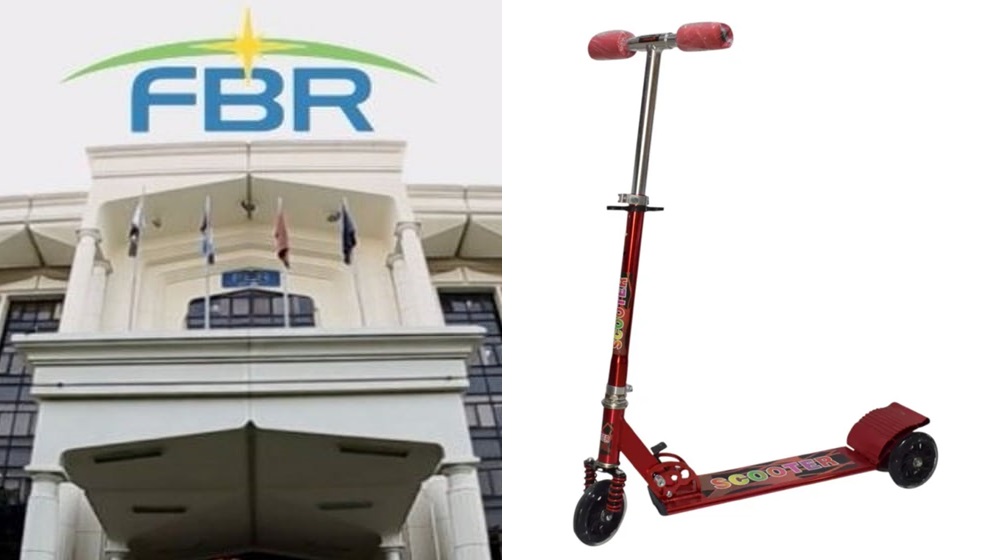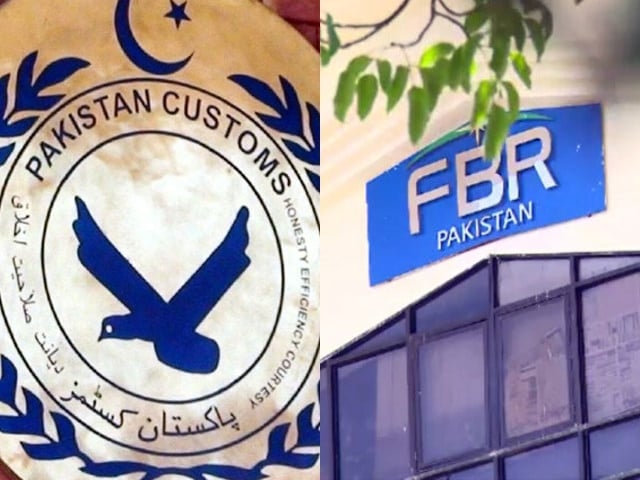PTBP Web Desk
Federal Board of Revenue (FBR) Chairman Rashid Mahmood Langrial on Monday ruled out any contingency or emergency taxation measures, despite a Rs275 billion revenue shortfall recorded during the first four months (July–October) of the fiscal year 2025–26.
Speaking at a presentation on economic reforms held at the FBR Auditorium, Langrial assured that the revenue gap would not lead to new tax impositions this year. Instead, the focus would remain on broadening the tax base, enhancing compliance, and deepening ongoing reforms to ensure sustainable revenue growth.
Langrial reiterated his earlier stance from last year, reminding that he had similarly resisted emergency tax measures then. “There is no immediate need for imposing new taxes,” he said. “Our priority is to enhance compliance and widen the tax net to strengthen Pakistan’s fiscal system.”
According to the FBR Chairman, this strategic approach aligns with the government’s policy of stabilizing the economy without burdening taxpayers with sudden fiscal changes.
He emphasized that structural reforms, digital monitoring, and better coordination with provincial and federal institutions were already showing results in improving tax collection efficiency.
Sharing performance details, Langrial revealed that income tax return filings have increased by 18 percent this fiscal year, bringing the total number of taxpayers to 5.9 million — up from 4.9 million in the previous year.
“The income tax number of individuals increased by 18 percent during the current fiscal year,” he said, adding that the tax paid with returns amounted to Rs69 billion during 2024–25.
Langrial attributed this progress to the digital transformation that began in November 2024, which streamlined taxpayer services and made the filing process easier and more transparent.
He noted, “The FBR’s transformation efforts have boosted confidence among taxpayers and strengthened voluntary compliance.”
Highlighting the macroeconomic progress, the Chairman announced that Pakistan’s tax-to-GDP ratio had increased to 10.33 percent in 2024–25, compared to 8.83 percent a year earlier — the highest growth in 23 years.
“This improvement of 1.49 percent in just one year shows the effectiveness of our reforms,” he said, noting that the increase reflects better enforcement, compliance, and coordination with relevant agencies.
Langrial explained that the target for the coming years is to raise the overall tax-to-GDP ratio to 18 percent within the next three to four years. To achieve this, 15 percent of total revenue will come from the federation and 3 percent from provinces, with provincial cooperation being crucial to success.
Discussing operational challenges, the FBR Chairman acknowledged the difficulties faced by tax enforcement teams during field operations, including threats and attacks.
“Two of our officers were martyred near the Kohat tunnel during enforcement actions,” he said solemnly. “Our mission is not to fight, but to ensure compliance. With support from the Pakistan Rangers and other law enforcement agencies, our operations have now become safer and more effective.”
He revealed that over 160 Rangers personnel are currently assisting the FBR in enforcement operations, ensuring protection and stability in sensitive areas.
Langrial said that the FBR’s share in total revenue has grown from 8.36 percent to 10.33 percent within a year, thanks to improved monitoring and digital reforms.
He explained that the income tax gap remains significant at Rs1.7 trillion, of which Rs1.2 trillion is attributable to top-income earners, while the rest comes from other taxpayer categories.
The FBR’s ongoing digital reforms, including e-audit systems, data integration with NADRA, and AI-assisted risk assessment, are helping to identify high-value non-filers and reduce evasion.
Langrial emphasized that these measures would allow Pakistan to expand its tax base without introducing new or burdensome taxes.
Addressing a key concern, Langrial asserted that the FBR has been freed from political and administrative interference, allowing it to function more transparently and independently.
“The FBR is now an institution focused solely on national interest and economic sustainability,” he remarked. “We are working to ensure that every sector contributes its fair share.”
Langrial mentioned that major tax reforms have already been rolled out in several sectors, including tobacco, retail, and imports, resulting in stronger oversight and higher revenue collection.
He noted that the tax collection from the tobacco sector has significantly improved due to new tracking and monitoring systems introduced this year.
The FBR Chairman reaffirmed the government’s commitment to continue the reform process, aiming to bring Pakistan’s tax-to-GDP ratio in line with regional economies such as Malaysia and Indonesia.
He concluded that a balanced approach combining enforcement, compliance, and technology will ensure that the revenue system supports sustainable growth without adding undue pressure on businesses or citizens.
“Taxation reforms are not just about revenue; they are about building trust between the state and citizens,” Langrial emphasized. “We must create a fair, efficient, and growth-oriented tax system that drives Pakistan’s economic future.”




